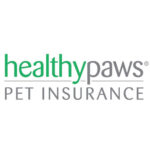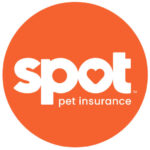Best Pet Insurance For Afghan Hounds In 2025
I hold that Healthy Paws is the best provider for pet insurance plans designed for Afghan Hounds.
We’ve saved shoppers an average of $350 per year on their pet insurance.
A surprising 80% of pet owners aren’t ready to handle an unexpected $500 vet bill. Pet insurance fills this gap by offering a financial safety net.
In this review, we’ll look at the top pet insurance options for Afghan Hounds, helping you find a policy that suits your requirements. Pet insurance, similar to health insurance, offers better care options and caps out-of-pocket costs.
Best Pet Insurance Companies For Afghan Hounds, 2025
Various insurance providers specializing in Afghan Hounds have common goals of ensuring your pet's health and providing financial help, yet they differ in their offerings. What suits one pet may not be the best fit for another. Here are the top pet insurance companies for Afghan Hounds:



Compare The Best Pet Insurance Companies For Afghan Hounds
Based on our examination of the top pet insurance options for Afghan Hounds as outlined before, it's apparent that numerous well-established companies are competing for the top spots. Each company also offers its own unique advantages. Here's a concise overview to provide you with insights into each insurer.
| Overall Rating | Best For | Waiting Period | Reimbursement % | Benefit Limit | Get A Quote | |
|---|---|---|---|---|---|---|
| Healthy Paws |
|
Overall |
15 days accident/illness |
70%, 80%, 90% |
Unlimited annual and lifetime |
Instant Quote |
| Lemonade |
|
Cheap |
2 days accident, 14 days illness |
70%, 80%, 90% |
$5,000 to $100,000 annually |
Instant Quote |
| Many Pets |
|
Puppies |
15 days accident/illness |
70% or 80% (Most States) |
Unlimited annual and lifetime |
Instant Quote |
| Pumpkin |
|
Older Dogs |
14 days accident/illness |
90% |
$10,000 , $20,000 or unlimited |
Instant Quote |
| Spot |
|
Multiple Pets |
14 days accident/illness |
70%, 80%, 90% |
$2,500 to unlimited |
Instant Quote |
Our Methodology
We rated insurers based on their websites, customer reviews, other review platforms, and personal experiences with pet insurance.
Quotes Analyzed
Years of Industry Experience
Brands Reviewed
Research Hours
Detailed Reviews Of The Best Afghan Hound Insurance Companies
Best Overall
Key Statistics
Why We Like Them
⇅Healthy Paws offers the best pet insurance, with no claim payout limits, no per-incident maximums, and no policy restrictions. Although it may require a higher premium, it’s worth it to avoid tough choices based on policy constraints. The policy is simple and free from expensive extras, and it allows you to visit any licensed vet. Claims can be easily filed via their app or website, with most settled within two days.
Benefits & Drawbacks
⇅- Unlimited reimbursements yearly and for all time.
- Majority of claims processed rapidly within two days.
- A refund is available within 30 days
- Likelihood of direct financial settlements with veterinarians. ✓
- No routine healthcare plan available ✘
Runner-Up For Best Overall
Key Statistics
Why We Like Them
⇅Lemonade is the most budget-friendly choice for Afghan Hound insurance, offering coverage limits similar to other companies but falling short of Healthy Paws’ unlimited scope. Lemonade’s annual coverage ranges from $5,000 to $100,000, with premiums increasing in line with the coverage amount. The standard policy includes coverage for accidents and illnesses, including cancer, heart disease, skin issues, fractures, and hip dysplasia, a common concern in older Afghan Hounds. However, Lemonade doesn’t cover preexisting conditions, dental problems, behavioral issues, or elective treatments.
Benefits & Drawbacks
⇅- Utilize a wellness program that's currently available.
- Benefit from a brief two-day waiting period after an accident for coverage.
- Save 10% by including pet insurance with your Lemonade home, renters, or car insurance. ✓
- The pet telehealth line isn't on-call every hour.
- Additional fees are applicable to veterinary examination costs.
- Regrettably, prescription food and microchipping do not fall under the policy's coverage. ✘
Best For Puppies
Key Statistics
Why We Like Them
⇅ManyPets provides the best puppy insurance with rates that aren’t impacted by pre-existing conditions. Conditions that have been resolved could be eligible after 18 months, while unrelated conditions can still be covered. Afghan Hound puppies, like other young dogs, are prone to accidents, poisoning, and swallowing foreign objects. Early insurance helps avoid exclusions for pre-existing conditions as they grow up.
Benefits & Drawbacks
⇅- Available in a wide variety of states, numbering over 40.
- Presents optional wellness program choices.
- Includes fees for veterinary consultations, covering both illness and accidents. ✓
- Pet telehealth assistance is not available at all times.
- Exclusion applies to pet behavioral therapy.
- Unfortunately, alternative treatments are not part of the coverage. ✘
Best For Older Dogs
Key Statistics
Why We Like Them
⇅As Afghan Hounds get older, they may develop genetic problems like cruciate ligament issues and hip dysplasia, both of which can be expensive to treat. Pumpkin covers these conditions right away and also includes vet exam fees for senior Afghan Hounds. They offer coverage for surgeries, dental treatments, and other health problems. With three deductible options, Pumpkin typically reimburses 90% of the vet bills.
Benefits & Drawbacks
⇅- Opt to join a wellness option that's currently open.
- Save on pet insurance costs with coverage for multiple pets.
- Claim a generous 90% refund for dogs and cats over 8 weeks old. ✓
- Regrettably, there's no 24/7 option for pet telehealth support.
- Unfortunately, we don't have an accident-only plan as one of the available options. ✘
Best For Multiple Pets
Key Statistics
Why We Like Them
⇅Since Afghan Hounds tend to live in multi-pet homes due to their friendly demeanor, Spot provides a 10% discount for insuring multiple pets, resulting in big savings. Their preventive care plan includes wellness services such as annual check-ups, fecal exams, teeth cleanings, and some vaccinations. They also offer a 30-day money-back guarantee if you’re unsatisfied with the service. Spot reimburses up to 90% of qualifying vet bills and has a 24/7 helpline. You can visit any licensed U.S. vet or specialist.
Benefits & Drawbacks
⇅- Covers microchip embedding solutions.
- Provides an option for a $100 deductible.
- Offers constant access to a pet telehealth line, available 24/7. ✓
- Accidents require a 14-day waiting period, unlike the 2-day period offered by certain leading competitors. ✘
Average Cost Of Pet Insurance For Afghan Hounds
| Company | Deductible | Annual Reimbursement % | Monthly Price | Age Of Dog |
| Healthy Paws | $500 | 70% | $71 | 5 year old |
| Lemonade | $500 | 70% | $42 | 5 year old |
| Spot | $500 | 70% | $75 | 5 year old |
| Healthy Paws | $500 | 80% | $37 | 1 year old |
| Lemonade | $500 | 80% | $21 | 1 year old |
| Spot | $500 | 80% | $54 | 1 year old |
| Healthy Paws | $500 | 70% | $38 | 3 month old |
| Lemonade | $500 | 70% | $29 | 3 month old |
| Spot | $500 | 70% | $83 | 3 month old |
Average Cost Of Typical Vet Procedures
| Typical Vet Procedure | Average Cost Of Procedure |
| Puppy vaccinations | $75-100 |
| Flea & tick prevention | $40-200 |
| Heartworm prevention | $24-120 |
| Spay or neuter surgery | $200-800 |
| Annual exam | $240-600 |
| Teeth cleaning | $200-500 |
| Microchip | $40 |
Average Cost Of Emergency Vet Procedures
| Emergency Pet Procedure | Average Cost Of Procedure |
| General consultation/exam | $100-$150 |
| General bloodwork | $80-200 |
| X-rays | $150-$250 |
| Ultrasound | $300-$600 |
| 1-2 day hospitalization | $600-$1,700 |
| 3-5 day hospitalization | $1,500-$3,500 |
| Wound treatment & repair | $800-$1,500 |
| Emergency surgery | $800-$2,500 |
| Oxygen therapy | $500 |
Is Pet Insurance Worth It For Afghan Hounds?
Pet insurance acts as a buffer against unforeseen veterinary expenses. While many pet parents manage their pet’s medical costs, a notable number of Americans find it difficult to handle a $1,500 emergency vet bill. The right pet insurance provides financial protection, allowing you to prioritize your pet’s health rather than worrying about costs.
The variations in expenses and coverage options across pet insurance plans can make it difficult to choose the right one for your needs. To help you select the best plan for your pet, consider these important points before making a decision:
The value of pet insurance largely depends on your expectations. If your pet is currently being treated for a chronic condition and you expect financial support, you might feel disappointed since no insurers we reviewed cover pre-existing conditions. However, if you grasp your policy’s coverage and ensure it aligns with your budget, you’re likely to see it as a beneficial investment.
Common Health Issues For Afghan Hounds
Afghan Hounds, like many purebred dogs, are prone to breed-specific health issues that often stem from genetic factors. In some cases, breeders may not have given enough attention to genetics, resulting in health problems that are more widespread within the Afghan Hound breed. Compared to other breeds, Afghan Hounds are more susceptible to genetic health concerns. Here are some of the most common ones:
- Cancer (Oral Melanoma, Mast Cell Tumors)
- Brachycephalic Obstructive Airway Syndrome (BOAS)
- Patellar Luxation
- Hip Dysplasia, Legg-Calvé-Perthes Disease
- Corneal Ulcers, Entropion, Dry Eye
- Skin Fold Dermatitis, Infections
How To Find The Best Pet Insurance Company For You
The variations in expenses and coverage options across pet insurance plans can make it difficult to choose the right one for your needs. To help you select the best plan for your pet, consider these important points before making a decision:
Check Whether Your Pet Is Eligible
Typically, puppies and kittens must be at least 6 to 10 weeks old to qualify for pet insurance, depending on the company. Some insurers may not allow senior pets for initial enrollment or may only offer accident coverage. Nonetheless, once your pet is covered, most plans guarantee lifelong coverage if you keep paying the premiums.
Research What’s Covered
Pet insurance generally covers costs associated with surgeries, hospitalizations, and medications for sick or injured pets. However, some specific services may incur additional charges or not be covered at all. Here are a few examples:
- Exam fees: If your dog suffers a broken leg, some plans may cover X-rays, surgery, and pain relief but might not include the veterinarian’s examination fee.
- Alternative treatments and rehab: Some plans may include coverage for alternative therapies like acupuncture and physical therapy, while others might charge extra.
- Behavioral therapies: Not all plans cover treatments for behavioral issues such as aggression.
- Prescription food: Certain plans might exclude food or supplements prescribed by a vet for a covered issue.
- Dental care: There can be significant differences in dental coverage among pet insurance plans. Some may not cover conditions like gum disease or tooth problems, while others might depend on recent dental cleanings. Some wellness add-ons might cover dental cleanings as well. Also, keep in mind that most pet insurance policies do not cover pre-existing conditions, cosmetic procedures, or breeding expenses.
Decide How Much Coverage You Want
Most pet insurance plans impose an annual payout limit, though some do not have such caps. You are responsible for selecting a coverage amount that gives you peace of mind regarding veterinary expenses. If your dog or cat is healthy, you might go for years without incurring costs beyond regular checkups. However, unexpected surgeries or major illnesses can lead to vet bills that climb into the thousands.
Understand Reimbursements And Deductibles
In the realm of pet insurance, most plans will reimburse part of your veterinary expenses. When you purchase a plan, you typically have the option to select a reimbursement level, such as 70%, 80%, or 90%. On the other hand, some plans stick to set fees for specific treatments, which might be less than what your vet charges, leaving you to cover the additional cost.
Nearly all plans also have a deductible—the upfront amount you pay before the plan starts covering costs. You usually have the choice of different deductibles, like $100, $250, or more. Some plans apply the deductible for each issue your pet has, while most just require it to be paid once a year.
Generally, if you choose a lower deductible with higher reimbursement, your premiums will be higher. But if you select a higher deductible with lower reimbursement, your premiums will be lower.
Check Waiting Periods
Following the purchase of a policy, there’s usually a short waiting period of approximately 14 days before full coverage for accidents and illnesses begins. During this time, treatments are not covered. Longer waiting periods may be applicable for certain conditions such as cruciate ligament injuries, which affect a dog’s knee stability and movement.
Examine Extra Costs
Some pet insurance firms include coverage for regular services such as check-ups and vaccinations. While this might be appealing, it’s essential to assess whether the extra cost is worthwhile. Compare the annual cost of the wellness insurance plan to what you usually pay for these services annually. Ensure you review the specifics, as definitions of “wellness” can vary among different pet insurance providers.
Compare Quotes
The cost of pet insurance can differ depending on the provider and the coverage options available. Some insurers offer discounts for insuring multiple pets, which may result in cost savings. However, discounts alone do not necessarily mean it’s the best plan. To find the right pet insurance, it’s essential to thoroughly research and obtain quotes from different plans. Ensure your comparison is fair, taking into account coverage levels, deductibles, and reimbursement limits.
Factors That Impact Cost Of Your Pet Insurance Policy
Similar to health insurance, pet insurance costs can fluctuate due to specific factors, such as:
- Location: Insurers take into account local veterinary care costs when determining your policy’s price.
- Pet’s Age: Older pets are often more prone to health issues, resulting in higher premiums.
- Pet’s Breed: Certain breeds may be more susceptible to health problems. For example, bulldogs and Boston terriers frequently face respiratory issues, while larger breeds like Pugs are at a higher risk for hip dysplasia. These factors can affect your pet insurance costs.
- Deductibles, Coinsurance, and Coverage Limits: The less you are willing to pay for your pet’s care out-of-pocket, the higher your premiums will be. For instance, choosing a $100 deductible instead of a $500 one allows for faster reimbursements but comes with increased premiums.
FAQs
Is pet insurance cheaper for purebred dogs?
Because of genetic weaknesses, purebred dogs often require more expensive health insurance than mixed-breed dogs.
What is the average cost of owning a Afghan Hound?
The first-year expenditures amount to approximately $3,000, covering vaccinations, food, grooming, and insurance. Afterward, annual costs decrease to about $1,900.
What insurance do you need for a dog?
Pet insurance is recommended for dog owners to manage veterinary expenses and keep their pets healthy.
Sources
⇅